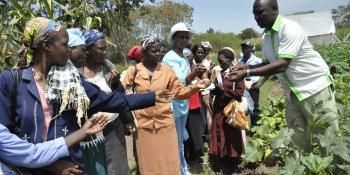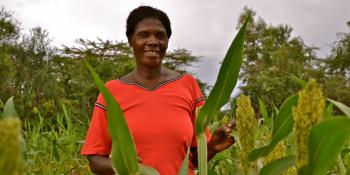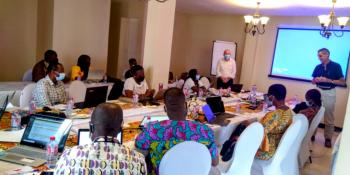Africa’s Green Revolution needs inclusive and localized business models
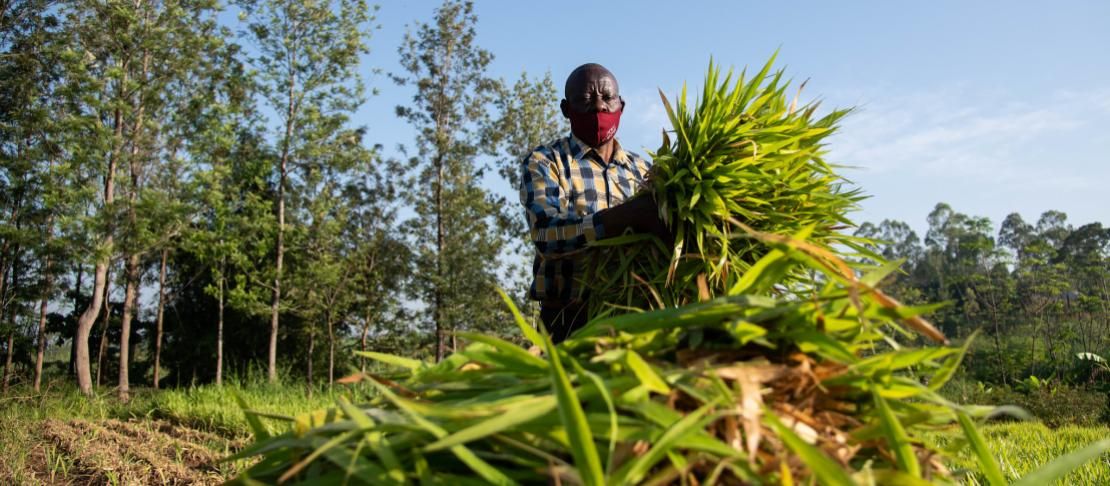
The Alliance for the Green Revolution in Africa’s (AGRA) report The hidden middle: A quiet revolution in the private sector driving agricultural transformation illustrates that SMEs will be vital to the continent’s long-awaited green revolution.
Dr Agnes Kalibata, President of AGRA, argued that for Africa to adapt to climate change, it is imperative to engage and empower the continent’s SMEs, which handle 64% of the food consumed on the continent.
However, SMEs often lack the collateral, resources and support needed to realize their potential. The authors refer to the ‘hidden middle—an overlooked cohort of essential but unrecognized workers and enterprises that include agro-dealers, truckers, processors, wholesalers, and street vendors.
Foundations
As stated in Research and Innovation Strategy: Transforming food, land, and water systems in a climate crisis, OneCGIAR intends to deepen engagement with the private sector to achieve greater impact at scale when working towards the Sustainable Development Goals (SDGs). CGIAR-led research and development programs, in partnership with national and international institutions, will work closely with a diverse range of actors spanning multinational companies, philanthropic foundations, and national, regional, and local companies of all sizes.
According to the UN report, Greening SMEs as the basis for moving towards circular economy and sufficiency economy, SMEs with fewer than 250 employees often constitute the formal private sector actor closest to smallholders. As such, SMEs are well situated to connect to farmers and facilitate collaboration. In line with this, a recent learning session organized by CGIAR Research Program on Climate Change, Agriculture and Food Security (CCAFS) and Wageningen University & Research (WUR) emphasized SMEs’ importance to climate mitigation. The session focused on the role of SMEs in CGIAR’s & WUR’s efforts to scale up climate-smart agriculture (CSA) in East Africa.
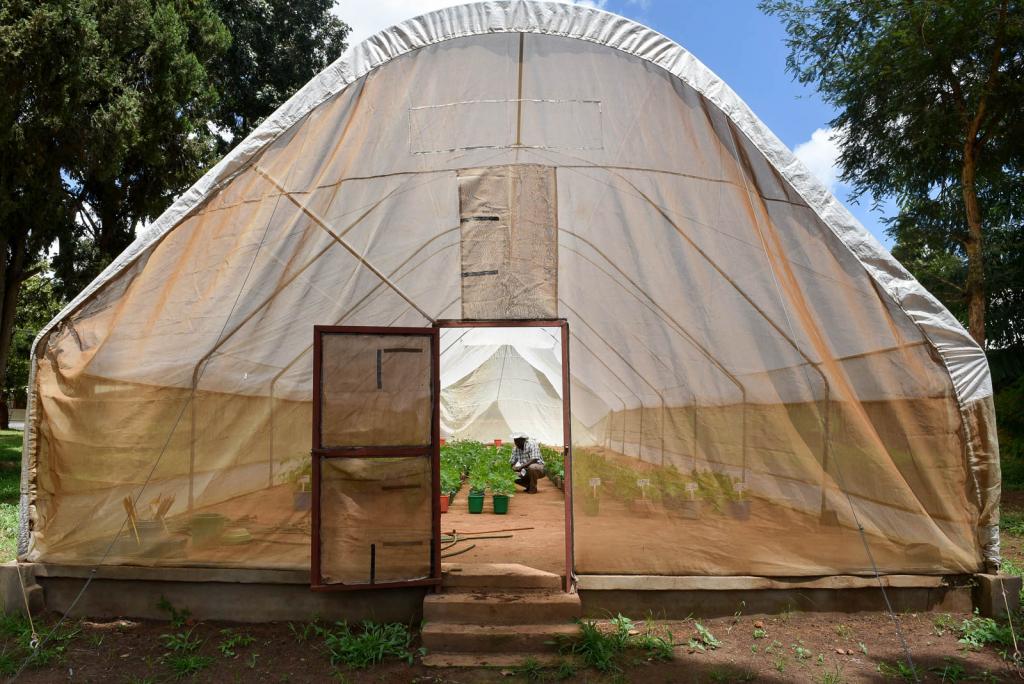
Trials of International Center for Tropical Agriculture (CIAT)-improved, drought resistant "magic beans" in a greenhouse in Malawi . Photo © N. Palmer (CIAT).
The significance of SMEs in Africa’s agri-food systems
SMEs make up about 80% of the private sector operating in Africa’s midstream agricultural value chains. Midstream SMEs handle up to a further 80% of the marketed farm output consumed in Africa. Additionally, a small but growing cluster of SMEs occupies space in upstream input value chains, delivering improved farm inputs, extension information, and post-harvest handling services. This group of direct service providers, using inclusive business models that engage a broader base of smallholder farmers, could help scale up CSA across Africa.
SMEs using CSA-related incentives can contribute to smallholder resilience against market, social, and environmental shocks. Smallholder resilience represents the ability for farmers to adapt to the systemic shocks characteristic of agri-food systems. Agribusiness managers, development actors, and farmers themselves can use organizational structures as levers to enhance smallholder resilience by fostering inclusive competition while mitigating climate change. Given the diversity of partnerships that could strengthen resilience, such multi-stakeholder initiatives must reflect local, cultural, and geographic differences.
The role of the private sector in CSA attends to a specific theory of change, assuming that the integration of farmers into commercial value chains improves yields and income. It assumes that access to climate-smart innovations will increase farmers’ adaptivity to climate change and their technical and managerial competencies. Through triple bottom-line approaches and inclusive business, private sector actors can assimilate profitability targets with social and environmental sustainability goals.
Climate change exacerbates the urgency to scale up seed systems that supply a diverse selection of crop varieties. These seeds should be top quality, stable, or high yielding and stress-tolerant. The Climate Resilient Agribusiness for Tomorrow (CRAFT) project supports seed companies and service providers to improve farmers’ access to climate-resilient seeds using inclusive business models. The benefits include increased business skills and social capital for SMEs and contracted farmers. Due to sustained interaction and collaboration, there have been valuable increases in the level of trust and loyalty between farmers and SMEs.
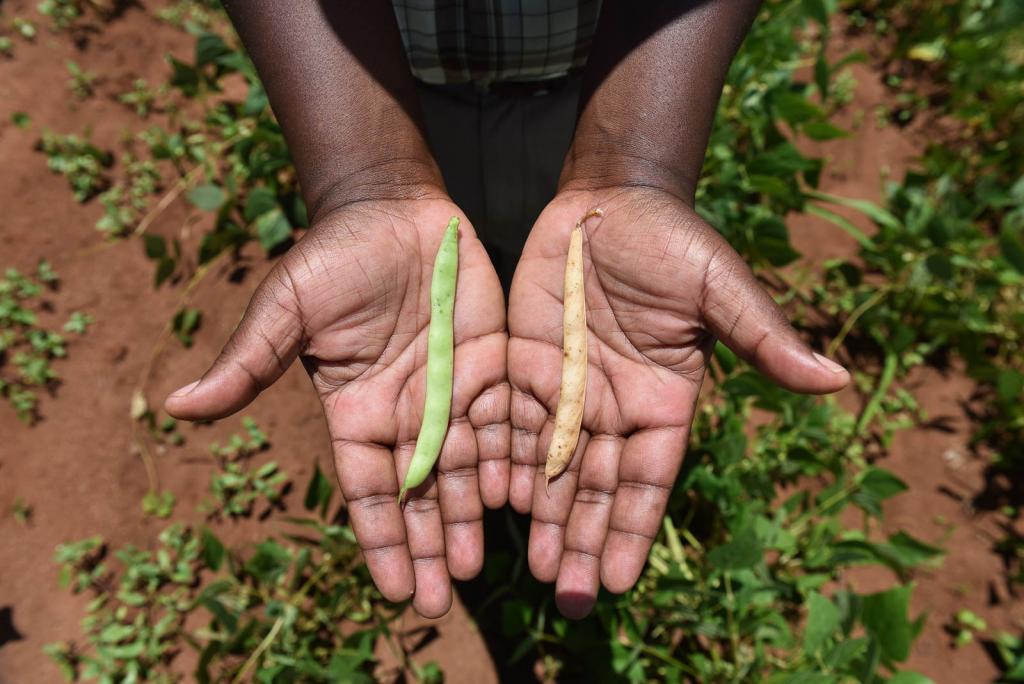
The pod from the drought tolerant variety is yellow, indicating early maturity, enabling the plant to escape the severity of the drought © Neil Palmer, 2016 (CIAT).
Challenges and lessons
However, the involvement of SMEs in CSA faces some challenges. First, the drive for profits and competition can deter SMEs from investing in CSA’s knowledge-intensive practices, mainly when there are risks for ‘leakages’ (e.g., farmers side-selling crops). Second, SMEs may choose to focus on ‘low-hanging fruit,’ farmers who are easy to reach at minimal costs, reducing investments to poor and marginalized groups because of lower profitability. These challenges undermine the scalability and inclusivity of private sector-driven, climate-resilient seed systems.
The potential success of SMEs in facilitating large-scale adoption of climate-resilient seeds, for example, must respond to contextual realities and constraints. Additionally, most SMEs promote certified seeds from formal seed systems, supplying less than 20% of the seeds used by African smallholder farmers. Meanwhile, farmer-managed seed systems, sourced from their harvests, community seed banks, and social networks, supply more than 80% of the seeds used by farmers. Given this reliance on an informal seed supply, donors and other development actors should consider fostering collaborative efforts between SMEs and farmer-managed seed systems.
Sarah Cummings the Public-Private Partnership and Research Uptake Expert at Wageningen University & Research (WUR). Helena Shilomboleni is Postdoctoral Fellow and Scaling Specialist at CCAFS & ILRI. Domenico Dentoni is a Professor of Business, Resilience & Transformation, Montpellier Business School, University of Montpellier. Jana Körner is a Science Officer at CCAFS. Wiebe Smit is the Project Administrator at the Program Management Units of CCAFS.
